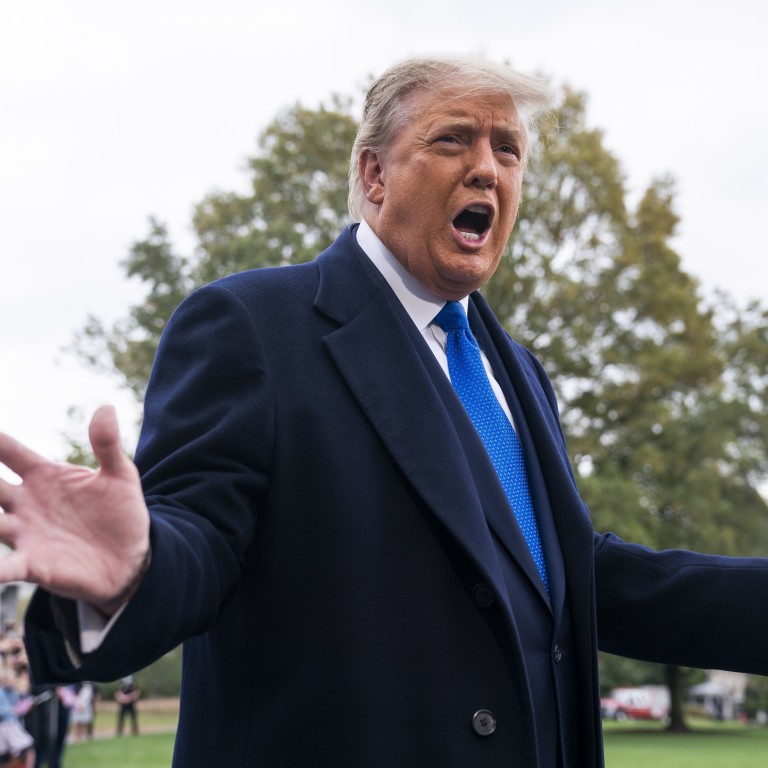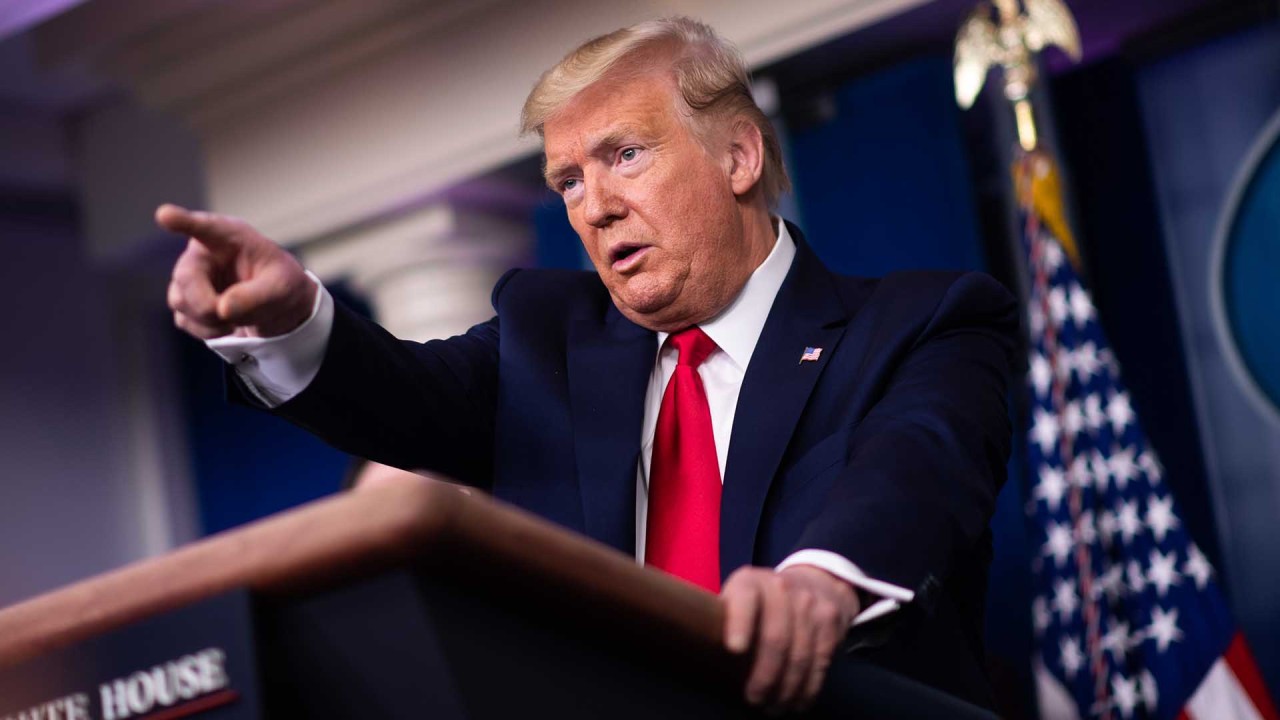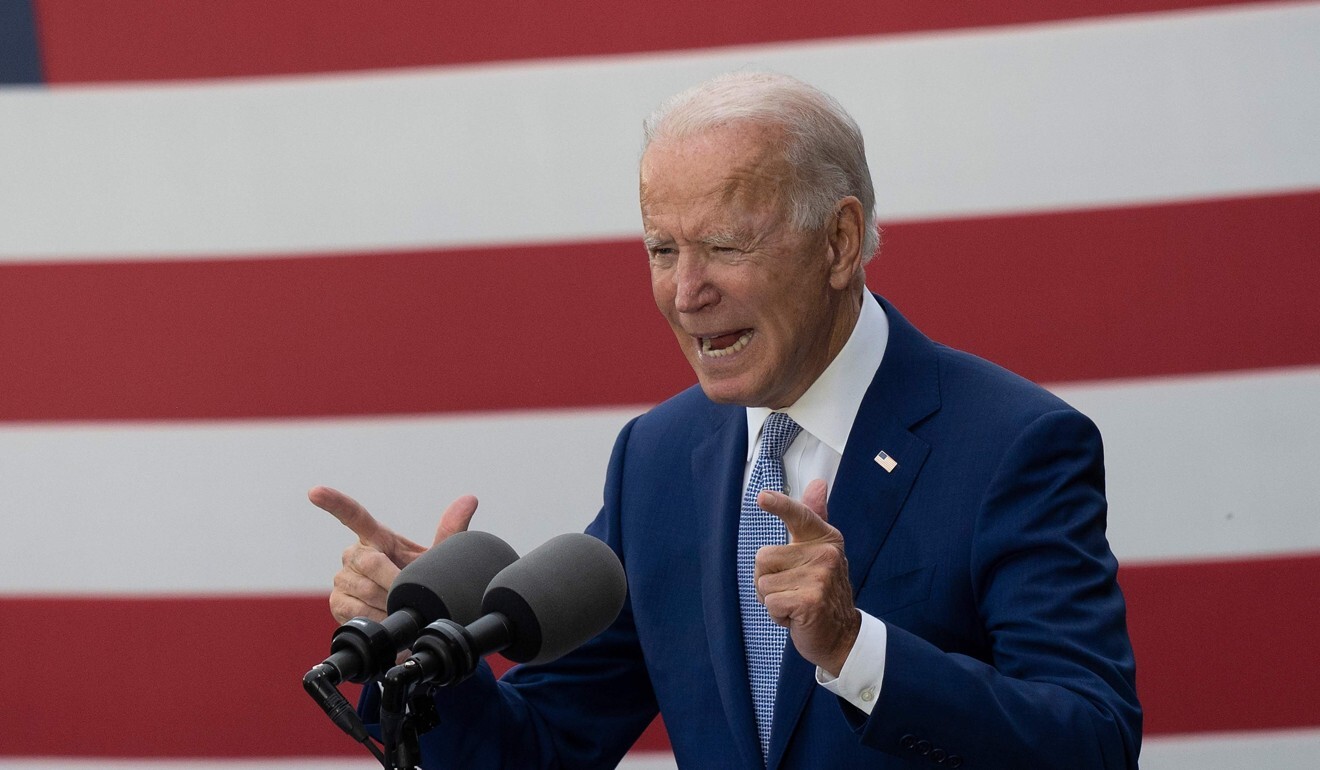
‘The dog that didn’t bark’: Donald Trump’s use of China as a campaign issue never got traction, analysts say
- Blaming Beijing for the coronavirus ‘just didn’t land’ and ‘that’s a really good thing’ for US-China relations, one analyst says
- Another bid to paint Democratic nominee Joe Biden and his son as corrupt allies of China has also failed to resonate with voters
US President Donald Trump’s efforts to use the novel coronavirus’s origins and other China-related issues as part of his re-election strategy have failed – averting what could have been further damage to a bilateral relationship already strained on multiple fronts, according to Eurasia Group.
Trump’s campaign has found that blaming China for the pandemic “just didn‘t land … and it’s not that there isn’t anti-China sentiment, it’s just the average American focusing on coronavirus is not willing to focus on China”, Ian Bremmer, the risk consultancy’s founder, said.
“I really don‘t think that the China issue is playing much at all in this election, and that’s a really good thing because it had the potential to a few months ago … and [Chinese President] Xi Jinping was not prepared to accept that lying down,” he told reporters in a virtual briefing about the foreign policy priorities of Trump and his Democratic challenger Joe Biden.
Americans have grown more suspicious of China following a number of developments, among them reports of Beijing’s mass incarceration of Uygurs and other religious minorities and crackdowns on pro-democracy activists in Hong Kong. At 73 per cent, the percentage of Americans holding a negative view toward China reached a “new historic high” amid the coronavirus pandemic, according to a Pew Research Centre report in July.

02:23
Trump stops calling coronavirus ‘Chinese virus’ and says Asian-Americans not to blame for outbreak
But in a Gallup Poll survey of registered US voters in the last two weeks of September, relations with China as “extremely important” came in second to last among a list of 16 election issues.
China is featured in only one of the three issues foremost on voters’ minds during this election cycle – public health, the economy and racial justice – so it proved to be a non-starter for any candidate hoping to use negative views of the country for political leverage, said Yun Sun, a senior associate with the East Asia Programme at the Stimson Centre in Washington.
“The American general public might have a very negative view of China, but that does not necessarily mean that whoever is tougher on China will get their vote,” Sun said.

“It means that they could see both China and Trump as bad players, or they might see that Trump‘s approach to China is not as effective as they would like to see, or they could see the benefit of his China policy not as significant as the costs of his other policies,” she added.
Biden has made Trump’s handling of the pandemic more of a campaign issue than China’s initial missteps in dealing with the outbreak when it first emerged near the end of 2019, arguing that Trump “waved the white flag and left the battlefield” months after he declared that the health crisis made him a “wartime president”.
US election 2020: Trump faces coronavirus spike in Midwestern states
The coronavirus outbreak was first reported in Wuhan in China’s central Hubei province in December 2019, with most cases related to a seafood wholesale market. A retrospective study published in The Lancet journal recorded that the first patient showed symptoms on December 1.
Yingyi Ma, a sociology professor at Syracuse University’s Maxwell School of Citizenship and Public Affairs, said “critical thinking skills” have helped to distance China from domestic concerns in the US.
“Most Americans do not necessarily view their problems with China as having much to do with their problems domestically,” said Ma, author of the book Ambitious and Anxious: How Chinese College Students Succeed and Struggle in American Higher Education. “I attribute this view to their critical thinking skills despite the Trump narrative blaming China.”
The Trump campaign’s attempts to tarnish Biden by making an issue of the Chinese investment business of his son Hunter Biden have also failed to gain traction, said Eurasia’s vice-chairman, Gerry Butts.

Hunter Biden has, for the past year, been the focus of accusations of corruption from Trump and his allies, and Trump himself has accused Beijing of paying “billions of dollars” in “payoffs” to the Bidens in exchange for beneficial trade treatment. (A similar attempt involving Hunter Biden’s business interests in Ukraine resulted in Trump’s impeachment by the House of Representatives.)
The Trump campaign has also said that Hunter Biden’s position as a board member of BHR (Shanghai) Equity Investment Fund Management was a result of his father’s influence.
US election: what would Trump and Biden foreign policy teams look like?
The Biden campaign has disputed the accusations, no charges have been filed against either Biden in relation to the position, and no wrongdoing has been proved.
“China was kind of the dog that didn’t bark in this campaign,” said Butts, who added that the accusations were meant to be the central piece of Trump’s portrayal of the Bidens as corrupt Beijing allies.
“The Trump campaign badly wanted to have a big dust-up with Joe Biden over China,” he said. Biden’s campaign decided to sidestep the issue by looking “a lot more aggressive toward China than they probably really are – all in an effort to forestall having this fight, which they knew was a losing battle for them”.

